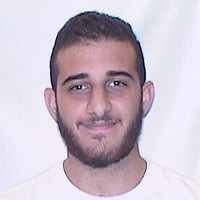General
Office hours:
Here is a calendar of all the office hours that the course staff offer. If you would like to speak to an instructor and you cannot make it to their office hours, send an email to set up a meeting. If you have a general question and cannot make it to anyone’s office hours, post to Piazza (see below).
For the most part, staff members will have the same office hours every week. Before going to someone’s hours, check where they will be on the calendar below. Should there be a change to someone’s hours, there will be a post on Piazza and the calendar will be updated.
People
Instructors:
|
|
TAs:
|
|
|
|
Your TAs help run the labs, help grade the exams, and hold office hours. In general, they are apprentice teachers and are here to learn how to run a course. At the same time, though, they are your peers who have taken the course, and can see your problems from your perspective.
Tutors:
|
|
|
|
|
|
|
|
|
|
|
|
|
|
|
|
|
Your tutors help run the labs, grade the homework sets, and hold office hours. In general, they are people who are interested in helping others learn, and they are your peers who have taken the course, and can see your problems from your perspective.
Communications
If you need help, you may talk to any of the instructors, the TAs or tutors during their office hours.
Use NEU email (@husky.neu.edu) to reach any of the course staff; usernames are given above. Use @ccs.neu.edu to reach instructors.
Piazza is an on-line forum for class discussions. Anybody can post a question and anybody else can reply. (Please do not post grading questions to Piazza. It’s best to email the grader instead for those kinds of questions.)
Before posting, check whether or not your question has already been asked. If it already has been asked and has not yet been answered, provided the question is not more than a day old, it likely will be answered soon. Do not double post.
Posting any parts of a solution to any parts of a homework assignment is considered cheating. You don’t want to do this. Limit your answers to other students to providing clarity when needed and hints when appropriate. This is good practice should you ever want to be a tutor :)
Note: anonymity on Piazza is implemented to make you anonymous to students but not to staff members.
General Policies
Late assignment policy: An assignment that is a fraction of a second late is automatically counted as a full day late. Each student gets 6 free, no-questions-asked late days for the term. The purpose of late days is to make the extension process fair and transparent by getting the instructors out of the extension-granting business entirely. You should not ask the instructor for late days. Instead, when you need an extension, you can take one—provided you have a late day remaining.
To use a late day, just submit the homework as normal. The server will keep track of the number of used late days, and will prevent you from submitting more than one day late for any problem, or not at all if you’ve used all your late days. Late days are applied to single assignment problems, not the entire assignment. Conserve your late days carefully.
No more than one late day may be used on any one homework problem. Late days cannot be divided fractionally, but must be used whole.
Regrade policy: Sometimes mistakes can happen so if you are confused or concerned about your feedback, don’t be afraid to reach out to a grader for further explanation. You must submit any requests for regrading at most 4 days after the feedback was released.
Academic honesty: We will strictly enforce Northeastern’s academic integrity policy. You may discuss problems with other students, but you may not share or show code to anyone other than your assigned partner or the course staff. Violations of academic integrity will be reported to OSCCR and will have a negative impact on your grade.
Lectures
Sec 1: Mon, Tues, Wed and Thurs at 9:50–11:30 pm
Microsoft Teams Razzaq
Lectures policy:
You are required to read the lecture material for the given lecture before viewing the lecture video. During the lectures we will discuss the material covered in the required reading, answer questions, provide additional examples and applications.
It is OK if you do not understand everything when you first read it, but reading about the new concept ahead of the time will give you a chance to anticipate the questions you may have and allow you to follow better the details of explanation during the lectures.
Labs
Section 1: 8:00am-9:40am in Teams
TA: tbdSection 2: 11:40am-1:20pm in Teams
TA: tbd
Labs policy
The goal of the labs is to see in practice problems that illustrate the concepts covered in the lectures, and to prepare you for the next programming assignment.
There is a lot of technical detail related to running Java programs that will be covered in the early labs. Later labs will focus more on design questions and on good Java programming practice.
For some labs, you may be expected to submit some of your lab work. More details about this soon.
Computing Environment
You will complete your assignments (other than the first one) using the Eclipse IDE. Though, if you feel more comfortable, you may choose to use another IDE (e.g. NetBeans) or work directly from the command line, but you must be comfortable with the chosen programming environment, and the staff may not be able to assist you with issues encountered in other environments.
You will use the handin server to submit your homework. You may submit as many times as you wish, though submitting too frequently will be detected and rate-limited, to ensure fairness for other students. Be aware that close to the deadline when everyone submits all at once, the server will become less responsive.
Assignments
There will be one or two problem sets each week. The problem sets will include finger exercises and practice problems, that you are strongly encouraged to look at and confirm that you can solve. You are welcome to bring solutions to these problems to the course staff during the semester for informal feedback on how you’re doing.
The problems will consist of structured programming assignments that may be based on the work done in previous weeks, and may also include more creative projects where you can practice your design skills. You may be asked to evaluate your own work.
Due Dates: Wednesdays and Fridays at 10:00pm EST, unless otherwise specified. See the late policy above.
Note: unlike CS2500 semester, you will submit each problem separately on the handin server. This is for your benefit: the server will attempt to compile and run your program against automated test cases. Having separate submissions for each problem means that a syntax error in one problem won’t immediately prevent your other problems from compiling also. Be careful to submit the correct answers to the correct problems.
Academic Integrity
All programs must be completed strictly by you. You are free to discuss the problem sets with others, so long as you acknowledge (in comments, in your submitted files) whoever you discussed the problem with. However, you may not share code in any way. Submitting code that is not your own will be considered a violation of the University’s Academic Integrity Policy (page 40 of the 2016-2017 Underaduate Student Handbook). Violations of academic integrity will be reported to OSCCR, and will have strong consequences on your grade, from an automatic zero on the assignment to failing the course.
NOTE: Be aware that while submitting someone else’s code is clearly a violation, so is sharing your code with others, even if you truly just mean to help. Outside an academic environment, sharing code with unauthorized parties can be a criminal offense and have severe and unanticipated consequences.
If you are ever unsure of whether sharing is unacceptable or not, ask one of the course staff.
Exams
Midterm 1: Thursday, May 21.
Midterm 2: Thursday, June 11.
Grades
45% homework. Most homeworks will be equally weighted, but larger projects that will take more time will be weighted more.
50% exams, with exact proportions to be determined.
5% lab work
As before, you can use the handin server to see the current weights of each assignment, and your approximate grade in the course so far. The exact weights of assignments, quizzes and exams will change during the semester, depending on exactly how many of each we have. We will let you know when we update these weights, and will try to keep it as infrequent as possible.
The grades will computed on an absolute basis: there will be no overall curving. The instructor may choose to curve an individual homework or exam, but please do not bank on such a chance.
The mapping of raw point totals to letter grades is given below. Please note that these grade boundaries may move slightly at the discretion of the instructor, but the grade boundary for A is unlikely to change. Grades are not rounded: for instance, earning a 92.5% does not imply we will round up to a 93% and hence to an A.
Range: 93% 90% 86% 83% 80% 76% 73% 70% 66% 63% 60% 0% Letter grade: A A- B+ B B- C+ C C- D+ D D- F






















